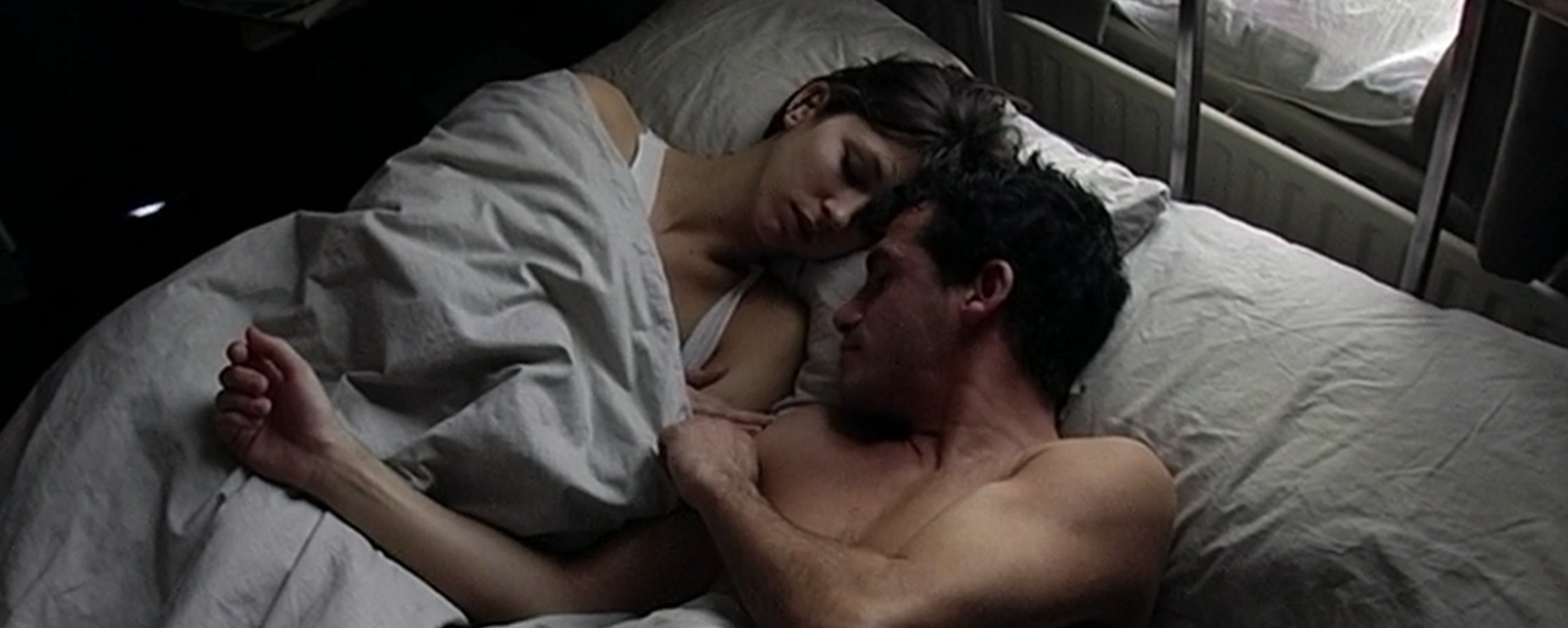
9 Songs
The issue of images of real sex in narrative films has always been contentious. Whenever a film containing real sex is submitted for classification - as 9 Songs was in 2004 - the BBFC has first to decide whether or not the film is a sex work - usually defined as pornography: films or videos designed specifically to sexually arouse or stimulate. In this case, the BBFC also applied the relevant Guidelines test of the time, of ‘exceptional justification by context’.
9 Songs was carefully considered at all levels of the BBFC and viewed by examiners, the Presidential team and the Director.
Those classifying 9 Songs also considered one of the BBFC's guiding principles, that state 'In line with the consistent findings of the BBFC's public consultations, at 18 the BBFC's guideline concerns will not normally override the wish that adults should be free to chose their own entertainment, within the law.’ However, there are exceptions to that principle and one is ‘the more explicit images of sexual activity – unless they can be exceptionally justified by context and the work is not a 'sex work' as defined below.’
It was clear to those who viewed it that 9 Songs was not a 'sex work'. (Sex works are defined by the BBFC as ‘works, normally on video or DVD, whose primary purpose is sexual arousal or stimulation.’) The intention of the work was clearly to explore a narrative about a relationship by showing two characters both having sex, talking and interacting in other environments (principally at live music gigs). It also did not 'look' like a sex work - it did not star well known sex performers, it was not shot so the only focus was on sex and titillating nudity and was not scripted to guide viewers to sexual 'scenes' or 'scenarios'.
Thus the decision became an analysis of whether the real sex, which was frequent and totalled over several minutes of screen time was ‘exceptionally justified’ by its context.
In this instance the narrative context of the work - which clearly aims to explore a relationship through sexual activity - was acknowledged by the examining teams who recommended 18 uncut unanimously.
Wider implications were also considered, and after bearing in mind the intention of the filmmaker, the likely audience of the work and the likely interpretation of the work from a wider audience it was felt that the sex in 9 Songs could be contained at the adult category.
The BBFCinsight reflected the defining classification issues which were both the strength and frequency of the explicit scenes. It read 'Contains frequent, strong real sex'. A press release explaining the BBFC's decision was issued prior to the film's release, on October 18 2004, that stated:
The BBFC has classified Michael Winterbottom’s film 9 Songs ’18′ uncut for cinema release. The film portrays the development of a relationship between two people, and includes a number of scenes of explicit, real, sexual activity. The Board carefully considered whether these scenes contravened the current classification Guidelines.
Some people may find such explicit images shocking or unexpected in a cinema film. The Board is sensitive to public concerns, and its Guidelines are based on extensive consultation. The Board’s Guidelines allow the more explicit images of sexual activity at ’18′ if they can be exceptionally justified by context. The Board has concluded in this case that adults should be free to choose whether or not to see the film. The film does not raise issues of harm or sexual violence. The film’s exploration of the relationship provides sufficient contextual justification for the Board to pass the work uncut at ’18′. 9 Songs is wholly different in appearance, tone, intention and treatment from the sex works which the Board classifies either at ’18′ or ‘R18′ (and which in the latter case may be supplied only in licensed sex shops).
The Board’s consumer advice for the film will make clear that the film contains frequent strong real sex so that anyone who might be offended can avoid seeing the film.
Note for Editors
Although not numerous, there are precedents for the Board passing real sex at ’18′, including Ai No Corrida classified ’18′ in 1991 (which also depicts the development of a relationship using images of real sex) and more recently Romance (1999) and Intimacy (2001).
Several letters were received, many of which arrived from people who had not watched 9 Songs, demanding it be banned, cut or removed from distribution. These views from groups and individuals (most of whom felt real sexual activity was inappropriate in any nationwide release) were all carefully considered. All letters were answered personally by the Director (David Cooke), the chief assistant (policy) or examiners who classified the film. Some of the letters received praised the BBFC for taking the decision to pass 9 Songs uncut enabling adults to chose what they watched themselves.
In Spring 2007 The Diocese of Litchfield produced a paper entitled Media Exploitation calling for further research into how peoples’ behaviour is influenced by the media they consume. The paper cited 9 Songs alongside other works including Destricted, Baise Moi and Intimacy as examples of the BBFC ‘making pornography easier to access by giving hardcore material 18 certificates’. The motion was debated at the Church of England Synod where the work of the BBFC was supported.
It is worth noting that when some features for the video/DVD release were submitted in 2005 the lack of contextual justification for one longer version of a sex scene (which was submitted to the BBFC and examined as a stand alone work) meant it was classified R18. For this scene, there was no broad context created by the film style, story or characters - rather it was simply a well shot sex scene.